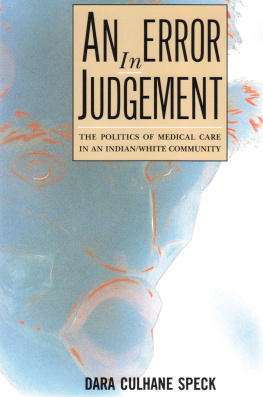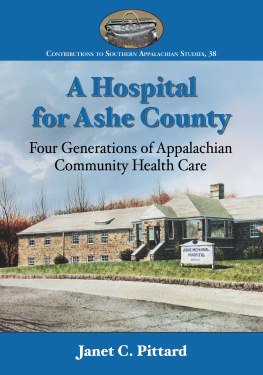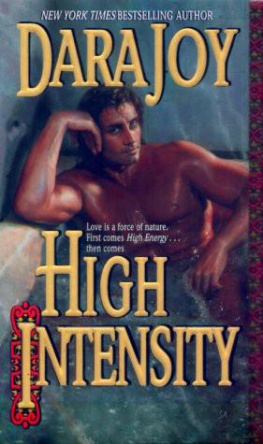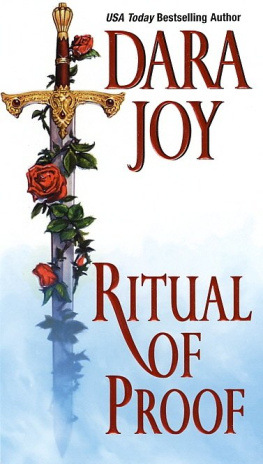
An Error in Judgement
The Politics of Medical Care
in an Indian/White Community
Dara Culhane Speck

Copyright 1987 Dara Culhane Speck
Published with the assistance of the Canada Council.
Talonbooks
P.O. Box 2076, Vancouver, British Columbia, Canada V6B 3S3
www.talonbooks.com
Cover by Derrick Carter
Fifth Printing: February 2004
Electronic edition: 2014
No part of this book, covered by the copyright hereon, may be reproduced or used in any form or by any meansgraphic, electronic or mechanical without prior permission of the publisher, except for excerpts in a review. Any request for photocopying of any part of this book shall be directed in writing to Access Copyright (The Canadian Copyright Licensing Agency), 1 Yonge Street, Suite 1900, Toronto, Ontario, Canada M5E 1E5; Tel.: (416) 868-1620; Fax: (416) 868-1621.
Cataloguing data available from Library and Archives Canada
ISBN: 978-0-88922-863-4
This book is dedicated to
PEARL ALFRED
backbone of a people
Contents
Acknowledgements
The mission of sociology is to understand the connections between history and biography, between social structure and personal histories, between public issues and private troubles.
C. W. Mills
In acknowledging those who have made this book possible, first and foremost tribute must be paid to Renee Smiths family, whose courage led them to share their private troubles so that public issues could be illuminated. Without their strength, and their tireless devotion to their own community and to the Native community in Canada as a whole, this book would not have been written.
Second, respect must be accorded to the Native community in Alert Bay, particularly to those individuals who participated most actively in the events that are described in this book. It is their biographies that illustrate history, and their personal histories that reveal social structures. Without their enduring commitment to justice for Native peoples, and their inexhaustible dedication to making their community a better place to live in, the events I have documented would not have taken place.
Third, I wish to thank those who have practically assisted me in the researching and writing of this volume. First, thanks go to my husband, George Speck, Jr. In particular, the historical data, and the perspective from which it is presented, are drawn from his research into the historical social character of Kwakw a k a wakw1 society. George has not only made these substantive contributions to the text, but he has also read and critiqued draft after draft of the manuscript. Furthermore, George was an active participant in the events described. After living together for fourteen years, and being students in the same faculty for four, we can no longer tell where his ideas end, and mine begin.
Another person with whom I shared the experiences recorded here most intimately, and with whom I have spent incalculable amounts of time in reflecting on these events, is my husbands cousin, Kelly Speck. We, too, have shared so many ideas and interpretations that it is futile to try to unravel them at this point.
One friend has been more help than she acknowledges. Miki Maeba and I met in 1976 when she began teaching at the T'Usalagi'lakw School in Alert Bay. Through countless hours of discussion over the years, we have helped each other gain insights and understandings neither of us could have found alone. Professor Noel Dyck of Simon Fraser University introduced me to the concepts of tutelage and resistance in Indian/White relations, bundles of beliefs about Indians held by Canadians, and problems in Fourth World political representation. I would also like to thank Noel Dyck for the encouragement, guidance and patience he offered me during the writing of the original draft of this manuscript as my undergraduate honours thesis.
Journalists whose coverage of the events has been quoted at length are: Bill Smith, the Victoria Daily Colonist', Anne Roberts, the Globe and Mail; Andrea Maitland, the Vancouver Sun\ and Bruce McLean, the Vancouver Province.
People who read earlier drafts of this manuscript and offered helpful advice are: Pearl Alfred, Dawna Ambers, Geri Ambers, John Bogardus, Eva Cook, Vera Cranmer, Dan Gillis, Fran Gillis, Professor Michael Jackson, Miki Maeba, Jane Mighton, Chavah Mintz, Elizabeth Nelson, Ethel Scow, Margaret Smith, Kelly Speck, Wedledi Speck, Renee Taylor, Gloria Cranmer Webster, Barbara Williamson.
Gary Fisher of Talonbooks gave me invaluable editorial assistance.
My mother, Claire, and my sister, Roism, have, as always, been unfailing in their support and encouragement. My brother, Gary, generously provided professional legal advice.
And, last but by no means least, my children, Carey and Lori Speck, have been patient and helpful throughout, and are my greatest source of inspiration. This book is written for them, and for their generation, in the hope that by learning from history they may be better able to shape the future.
Royalties from the sale of this book will be divided equally between the author and the Renee Smith Memorial Health Care Fund.
Foreword
1987 will no doubt go down in the history books of Canada as the year in which Quebec was brought back into the fold of Confederation. Following the Meech Lake Accord, the Prime Minister and the provincial premiers agreed to a constitutional amendment which entrenches the rights of Quebec as a distinct society. But what probably will not be recorded in the history books is that in 1987 the same Prime Minister and provincial premiers failed to reach an accord to entrench in the Constitution the rights of Native people to self-government. Provincial concerns about the vagueness of the constitutional language, raised to defeat entrenchment of Native peoples right to self-government, were put aside when it came to recognition of Quebecs rights as a distinct society. Concerns as to the dire consequences for the future of Canada in not reaching an accord with Quebec led to a marathon all-night session by the First Ministers to hammer out a consensus. By contrast, at the Conference on Native Rights no such alarms were raised and the meetings concluded at the end of a working day without even a commitment to further constitutional talks.
Yet, in the enormous publicity that has attended the Meech Lake Accord hardly anyone (apart from Native people) has commented on the perversity and the paradox of acknowledging the constitutional significance and entrenching the constitutional distinctiveness of Quebec within Confederation, based on 400 years of history in North America, while refusing to acknowledge and recognize the significance of Native peoples distinctive place in that same Confederation based on over 10,000 years of their history on this continent.
The failure to even recognize, let alone redress, this paradox is not rooted in the politics of liberal democracy (there are more Quebecois than Native people and they carry more political clout) but in the politics of racism and colonialism. It is rooted in the continuing failure of Canadians to accept Native peoples as equals and contemporaries. The dark legacy of superiorist attitudes and policies directed at Native peoples explains not only the constitutional events of 1987, it lies at the heart of Dara Culhane Specks An Error In Judgement.
An Error in Judgement is based on an event in the life of an Indian community in 1979the death of an eleven-year-old girl from an undiagnosed ruptured appendixwhich on the surface of things would seem to be a human tragedy belonging to the personal history of the childs family and of legal significance only in terms of the civil liability of the physician involved. However, as the political and historical overlays of this event are peeled back, we come to see that this is more than the stuff of personal suffering and individual responsibility. Informed by a historical understanding of the relationship between Indians and Whites as it has evolved over the last century in Alert Bay (and other Canadian frontiers of colonial expansion), we are made to realize that the events of 1979 are not an exception to, but a reflection of, underlying attitudes towards Indians. This story involves not simply matters of individual, but collective rights and responsibilities. We are made aware of the ways in which in the last 100 years there has been a systematic undermining of Native peoples ability to determine the shape of their own lives, a progressive and debilitating draining of their strength by a succession of missionaries, Indian Agents, health care professionals and child care workers, whose work has been informed by a common mandate to bring the benefits of a ''civilized" society to those who are seen to exist at an earlier stage of evolutionary development.
Next page













